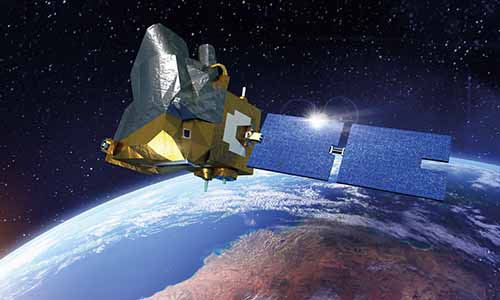Thales Alenia Space, the joint venture between Thales (67%) and Leonardo (33%), has completed the assembly, integration and testing (AIT) of the MicroCarb satellite platform, and is now ready to begin the integration of the dispersive spectrometer delivered to the UK, bringing this important climate mission a step closer to launch in early 2024.
MicroCarb is a joint French-British mission, with French space agency CNES as prime contractor for the satellite which is built on its Myriade platform, and Airbus Defence and Space providing the instrument. This mission is designed to precisely monitor the Earth’s atmospheric CO2 and detect the changes associated with surface emissions and carbon uptake across cities, forests and oceans worldwide. A special city- scanning mode will allow mapping CO2 distribution in cities, which are responsible for a majority of global emissions.
Thales Alenia Space is working alongside the French and UK space agencies to show how space-based science can help us better understand the vital carbon cycle.
Andrew Stanniland, Chief Executive Officer of Thales Alenia Space in the UK, said: “I am proud of my team’s achievements and the fact that we have repaid the trust placed in them to lead AIT and launch preparations for Europe’s first carbon monitoring mission. This is the first time that Thales Alenia Space in the UK has worked with CNES, reflecting the agency’s confidence in our teams of highly skilled engineers. I’m looking forward to the next phase of instrument integration, as it is an important part of our capabilities as a UK prime contractor for major space missions.”
Dr. Paul Bate, Chief Executive Officer of the UK Space Agency, added: “Over half of the critical measurements on climate change rely on satellite data, which means that the information delivered by MicroCarb will be hugely important. Having more accurate knowledge of how much carbon the world’s forests and oceans absorb will provide the information needed to take decisions on tackling climate change. It’s very exciting to see the MicroCarb satellite arrive in the UK. It’s also a testament to the expertise of the UK scientists and engineers involved and the world-class facilities available at the Harwell Space Cluster.”
The MicroCarb satellite will be launched from the Guiana Space Center in Kourou, French Guiana in early 2024, with support from Thales Alenia Space’s French and British teams.













